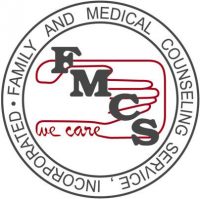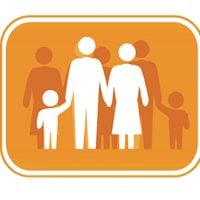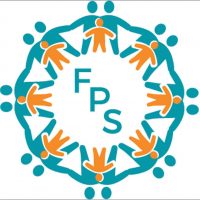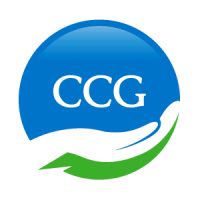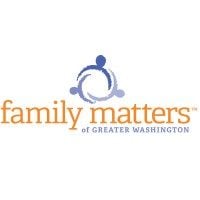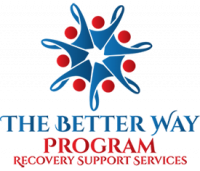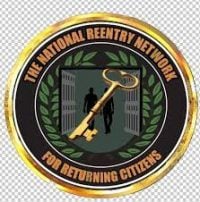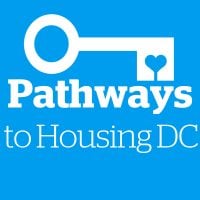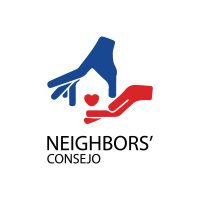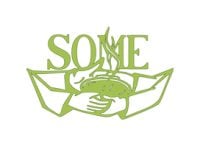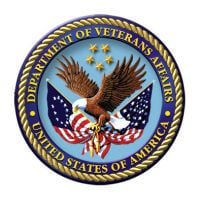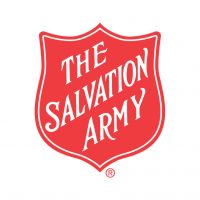Drug Rehab Centers in Washington, District of Columbia
The District of Columbia has a very high drug addiction and abuse rate. According to recent statistics, about 108,000 people in the district struggle with addiction. The most commonly abused drugs in the district include cocaine, heroin, and marijuana.
The District of Columbia has one of the country’s highest rates of drug addiction and abuse. This has had a devastating impact on the community, with crime rates and other social problems skyrocketing.
Families are struggling to cope with addiction, and many people are looking for help.
Businesses are also affected by the high drug abuse rates, as employees struggle with addiction and absences. Productivity suffers, and there is a ripple effect throughout the economy.
The good news is that help is available. Many excellent drug rehab centers in Washington, District of Columbia, can help people struggling with addiction get clean and sober.
Here, we list many of the best drug treatment facilities and centers in Washington, most of them with their own unique qualities. There are plenty of Washington, facilities in our directory that are available to enable you or your partner to lead a safe, clean and drug-free life.
Get Professional Guidance on Finding Treatment
We will help you find treatment based on your location, budget, and specific needs and help you get started safely.
Free + Confidential Consultation
Browse 52 Centers in Washington, District of Columbia
Family and Medical Counseling Services
Family and Medical Counseling Services in Washington D.C. offers counseling, psychiatric, and substance abuse services to those affected by addiction, mental health disorders, and comorbid conditions, with a focus on personalized care and evidence-based, trauma-informed approaches.
Voices for a Second Chance
Voices for a Second Chance is a state-funded substance abuse and addiction treatment facility located in Washington, District of Columbia, offering individualized treatment plans, residential and outpatient programs, and referrals to community resources and support groups.
Family Preservation Services in Washington, D.C. is a private mental health and behavioral health organization that offers various evidence-based interventions and counseling services to individuals, couples, and families, including substance use disorder treatment and child and family services, while also providing group services, aiming to empower clients to address underlying issues that contribute to their addictions.
Concerted Care Group Frederick
Concerted Care Group Frederick is an outpatient addiction treatment center in Washington, D.C., providing tailored treatment plans for addiction and substance abuse, including medication-assisted treatment, counseling, life skills training, family therapy, cognitive behavioral therapy, and dialectical behavior therapy.

Saint Elizabeths Hospital Campus - Adult Services
Saint Elizabeths Hospital Campus - Adult Services in Washington, DC offers comprehensive addiction and mental health services, including residential and outpatient programs, medication management, trauma-informed care, and expressive therapies in a safe and supportive environment, with a nationally recognized commitment to quality care.
Family Matters of Greater Washington is a Joint Commission Accredited substance abuse treatment center that offers a wide array of personalized services, including intensive outpatient programs, residential rehabilitation, group and individual therapy, medication management, and diagnostic assessments, as well as unique MAT (Medication Assisted Treatment) programs for those struggling with opioid and other substance addictions.
Cataada House
Cataada House is an addiction and substance abuse treatment center in Washington, DC that adopts a holistic approach to treatment, offering a range of evidence-based therapies, medication-assisted treatment, and 24/7 access to medical staff.

The University Legal Services - DC Jail Advocacy Project
The University Legal Services - DC Jail Advocacy Project in Washington, D.C. provides legal and counseling services to incarcerated individuals, including advocacy and referrals for addiction and substance abuse treatment.
The Better Way Program in Washington, D.C. offers addiction and substance abuse recovery services with personalized treatment plans, evidence-based interventions, and holistic services to promote long-term recovery.
PSI Family Services is a non-profit organization in Washington, DC that offers various levels of care for those with dual diagnosis and mental health issues using individualized treatment approaches and accepts private health insurance for payment.
Sibley Memorial Hospital offers inpatient and dual-diagnosis levels of care for those looking to get sober. The hospital accepts private health insurance as a form of payment, allowing those seeking treatment to focus on their recovery without financial stress.
The Reentry Network For Returning Citizens
The Reentry Network for Returning Citizens in Washington, District of Columbia offers a wide range of advocacy, mentorship, and support services to help individuals transition successfully after incarceration, including evidence-based therapeutic approaches, community collaboration, and access to resources to build lifelong skills.
Pathways to Housing
Pathways to Housing in Washington, DC offers support and housing for those facing homelessness and addiction, providing wraparound services such as employment assistance, mental and physical health care, 24/7 monitoring, access to counseling and therapy programs, and support groups, and unique programs such as their creative arts therapy program.
Neighbors Consejo
Neighbors Consejo is an outpatient addiction treatment program in Washington, DC that offers a variety of evidence-based treatment approaches for individuals with substance abuse and addiction issues, including physical and mental health services, drug and alcohol abuse counseling, individual therapy, family therapy, group therapy, and specialized treatment for co-occurring disorders.
SOME - So Others Might Eat
SOME is a mission-based organization in Washington, DC that provides nutritional, housing, health, and employment services to those in poverty in the Greater DC region, specializing in services for those with substance abuse and addiction issues.
Next Step
Next Step is a specialty substance-use disorder treatment center in Washington, D.C. that offers evidence-based treatments tailored to individual needs, with a variety of therapies and 24-hour nursing care, support groups, medication management, and integrated psychiatric care to help individuals struggling with addiction.
McClendon Center
The McClendon Center provides outpatient substance abuse and addiction recovery services with a variety of therapeutic approaches, including psychotherapy, group and individual counseling, and dual diagnosis treatment, while also offering family support, relapse prevention, and aftercare services.
Next Step
Next Step is an evidence-based treatment center in Washington, DC that provides comprehensive outpatient care for addiction, including alcoholism, opioid addiction, and dual diagnosis, using tailored and effective techniques such as cognitive behavioral therapy, family and group therapy, trauma therapy, and individual counseling.



The Salvation Army Harbor Light Center

Circulo de Andromeda
Circulo de Andromeda is a treatment center in Washington, DC that focuses on providing evidence-based programs to individuals recovering from addiction and substance abuse, offering a range of services including therapy, education, and family support.
Universal Healthcare Management in Washington, District of Columbia offers comprehensive inpatient and outpatient addiction and substance abuse treatment programs, including detoxification, therapy, family counseling, and specialized treatment programs, with a holistic approach to recovery and comprehensive care for co-occurring mental health disorders.
- 1
- 2
Information About Substance Abuse and Addiction in Washington, District of Columbia
According to the National Institute on Drug Abuse, the District of Columbia has one of the country’s highest rates of drug abuse.
In particular, the city has a problem with prescription drugs, with more than half of all residents reporting that they have abused a prescription drug at some point in their lives. Alcohol abuse is also a major problem in Washington, D.C., with close to 20% of residents admitting to binge drinking.
These statistics are significantly higher than the national average, and they underscore the need for better prevention and treatment programs in the city.
Fortunately, there are a number of organizations that are working to address this problem, and with continued effort, it is possible to reduce the rates of drug abuse and addiction in Washington, D.C.
Getting Sober in Washington, District of Columbia
In Washington, D.C., there are many different drug treatment options available. The most common type of treatment is outpatient care, which allows people to live at home while receiving treatment.
Outpatient care can be very effective, but it is not suitable for everyone. Some people need more intensive treatment, such as inpatient care, where they live at a treatment facility and receive 24-hour care. Inpatient care can be costly, but it is often covered by insurance.
There are also many free or low-cost treatment options available in Washington, D.C., such as 12-step programs and support groups.
No matter what type of treatment you choose, the most important thing is to get started on the road to recovery.
The District of Columbia is a great place to live after getting sober. The city has a lot to offer regarding job opportunities, nightlife, and activities. There are also many resources available to help you stay sober.
Drug rehab centers in Washington, District of Columbia, can provide you with the support and resources needed to maintain sobriety.
Drug and Alcohol Statistics in Washington, District of Columbia
According to the National Institute on Drug Abuse, in Washington, D.C., in 2013, 9.8 percent of residents over the age of 12 reported illicit drug use, and 5.5 percent of residents over the age of 12 reported alcohol use.
- In Washington, District of Columbia, there were 9,912 admissions to drug and alcohol treatment facilities in 2016.
- The most common drugs reported by people admitted to rehab in Washington, District of Columbia, are marijuana (36.6%), cocaine (16.7%), and opiates (including prescription painkillers) (10.3%).
- In 2016, there were 442 drug-related deaths in Washington, District of Columbia.
- Drug abuse and addiction cost the state of Washington District of Columbia an estimated $1.02 billion in 2010.
- The annual average number of drug overdose deaths in Washington, D.C., was 120 in 2010.
Additional Treatment Centers in District of Columbia
Still haven't found the right recovery center? Browse nearby District of Columbia cities.
- Washington, DC (52)
Signs of Someone Struggling with Addiction in Washington, District of Columbia
Addiction is a serious disease that can devastate every area of someone’s life. If you or someone you know is struggling with addiction, getting help as soon as possible is important.
Here are some signs that someone may be struggling with addiction:
-⠀Changes in mood or behavior:⠀This can include withdrawal from friends and family, drastic changes in eating or sleeping habits, and excessive moodiness.
-⠀Loss of interest in hobbies or activities:⠀This may be one of the first signs that something is wrong. If someone who used to love hiking or going to the gym no longer wants to do those things, it could be a sign that they are struggling with addiction.
-⠀The decline in work performance:⠀Addiction can lead to absenteeism, tardiness, and a decline in quality of work. If you notice these things in yourself or someone else, it’s time to get help.
If you see any of these signs in yourself or someone else, please reach out for help. Many resources are available to help people struggling with addiction; the sooner you get help, the better.
The Benefits of Getting Professional Help for Addiction in Washington, District of Columbia?
Some of the notable benefits of getting professional help for addiction are
- You will have access to a team of experienced professionals who will help you through the entire rehabilitation process.
- You will be provided top-of-the-line care and treatment tailored to your specific needs.
- You will be able to get clean and sober in a safe and comfortable environment. You will be given the tools and resources you need to successfully recover from addiction and build a sober, healthy life.
When you are struggling with addiction, it can feel like there is no way out. But there is hope.
Addiction is a treatable disease, and there are many resources available to help you or your loved one.
What are some common relapse triggers in Washington, District of Columbia
It’s not uncommon for people in Washington, District of Columbia, to relapse after treatment for substance abuse. In fact, according to the National Institute on Drug Abuse, between 40 and 60 percent of people in treatment for substance abuse will relapse at some point.
While there are many factors that can contribute to relapse, there are some common triggers that people should be aware of. These triggers can include stress, boredom, anxiety, depression, and exposure to drugs or alcohol.
To avoid relapse, it’s important to have a plan in place to deal with these triggers if they occur. This plan might include things like attending support group meetings, speaking with a therapist or counselor, and avoiding places or situations where drugs or alcohol are present.
If you do relapse, it’s important to get back on track as soon as possible and not let one slip-up derail your progress.
With a little effort and planning, you can minimize your risk of relapse and maintain your sobriety in Washington, District of Columbia.
Traveling Outside of Washington, District of Columbia
for Drug Addiction Treatment
There are many options for drug addiction treatment, but not all of them are right for everyone. Some people may benefit from staying in their home state for treatment, while others may find that traveling outside of Washington, District of Columbia is a better fit for their needs.
There are a few things to consider when making the decision to travel for treatment.
First, consider the type of treatment that you need. If you require specialized care or have a co-occurring mental health disorder, you may need to travel to find a program that can meet your needs.
Second, think about your support system. If you have a strong network of family and friends near you, they can be an important part of your recovery.
However, if your support system is not as strong, you may find it helpful to be in a different environment during treatment.
Finally, the cost is also a factor to consider. Traveling for treatment can be expensive, but many scholarships and financial assistance programs are available to help cover the cost.
